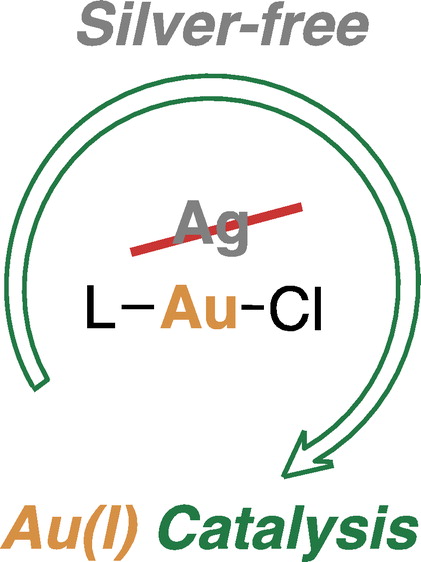Silver-Free Catalysis with Gold(I) Chloride Complexes
Gold(I) chloride complexes are stable, widespread precatalysts that generally require activation by halide abstraction to display useful catalytic activity. Chloride scavenging is typically performed in situ by using silver salts. This procedure, apart from mandating the use of an additional metal, often negatively impacts the reaction outcome, because Ag additives are not catalytically innocent (silver effect). Therefore, both the development of alternative chloride scavengers and the design of self-activating gold(I) chloride complexes endowed with special ligands have lately been the subject of intense research efforts. This review describes recent advances in the field of silver-free Au(I) catalysis employing gold(I) chloride complexes, with an emphasis on approaches emerged in the last decade.

Franchino, A.; Montesinos-Magraner, M.; Echavarren, A. M.
Bull. Chem. Soc. Jpn. 2021, 94 (3), 1099-1117
DOI:
10.1246/bcsj.20200358

Let's create a brighter future
Join our team to work with renowned researchers, tackle groundbreaking
projects and contribute to meaningful scientific advancements



















